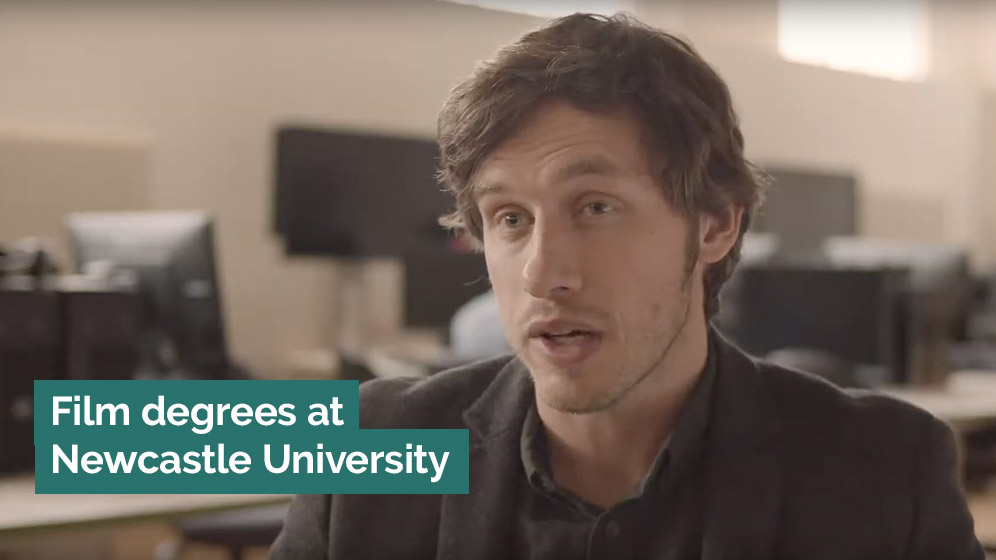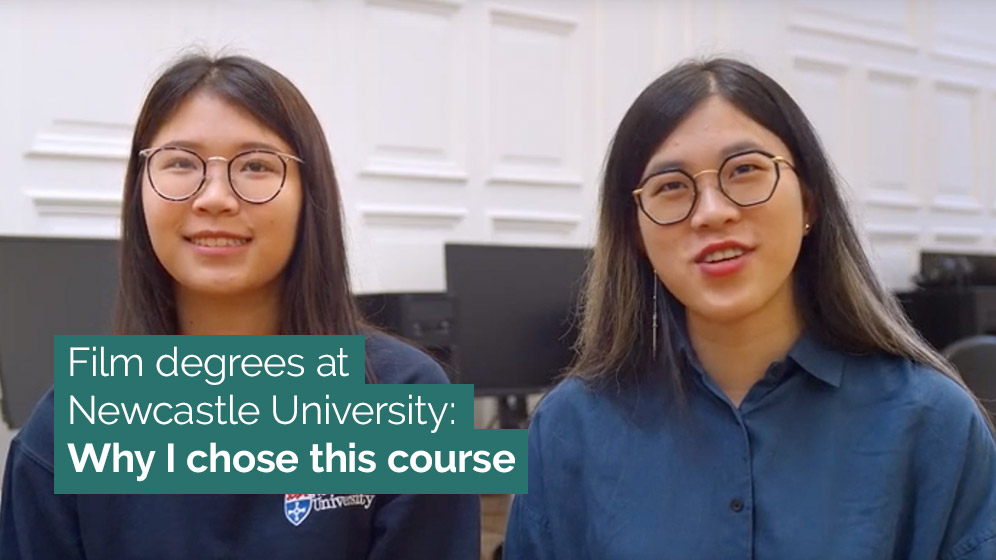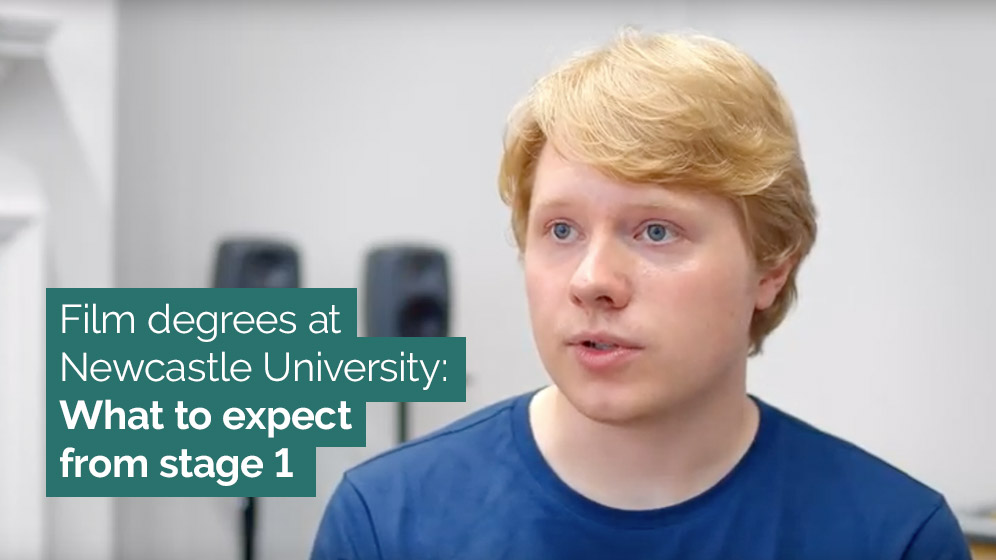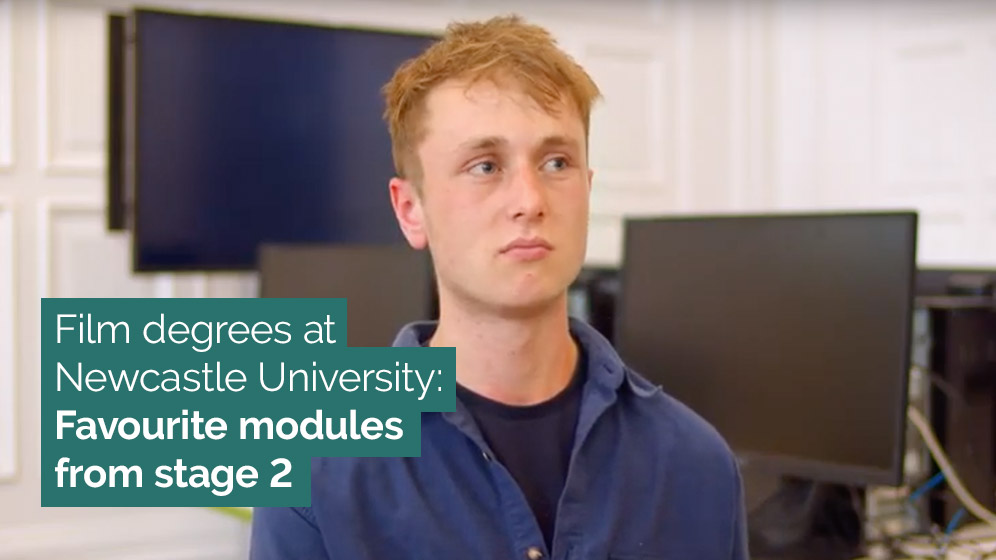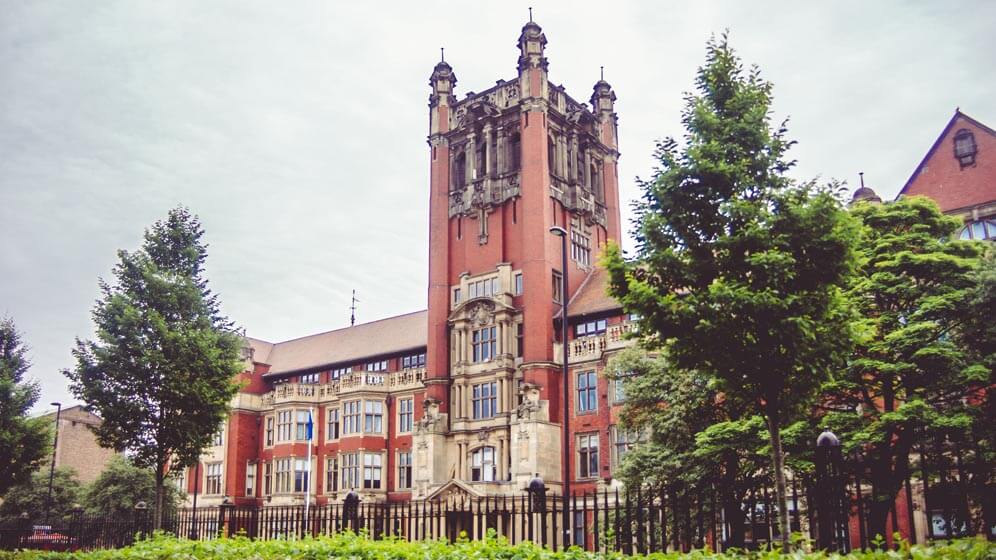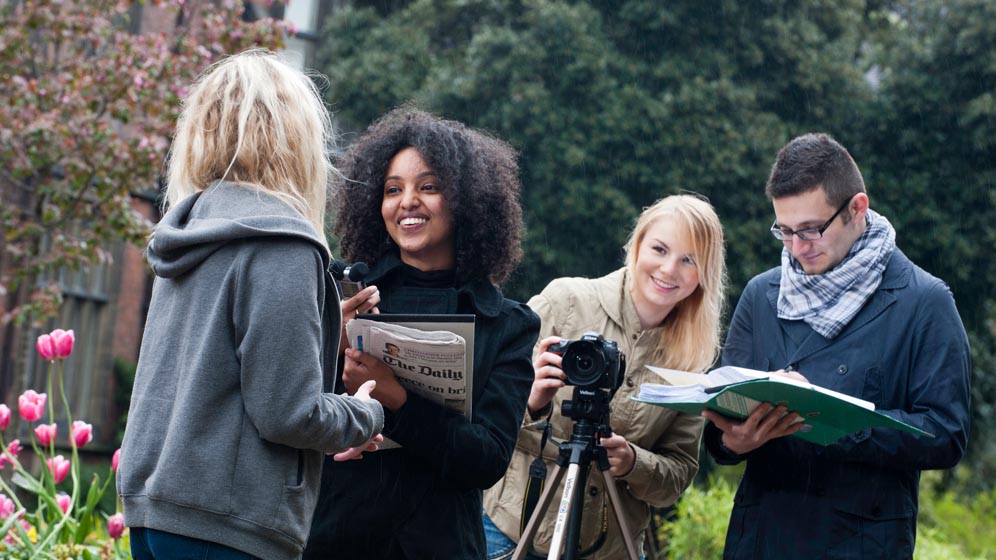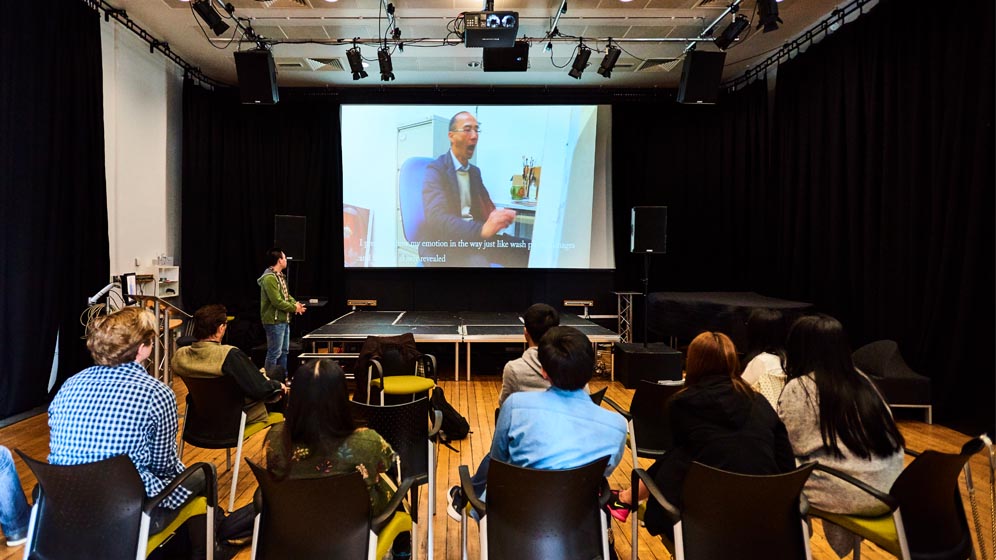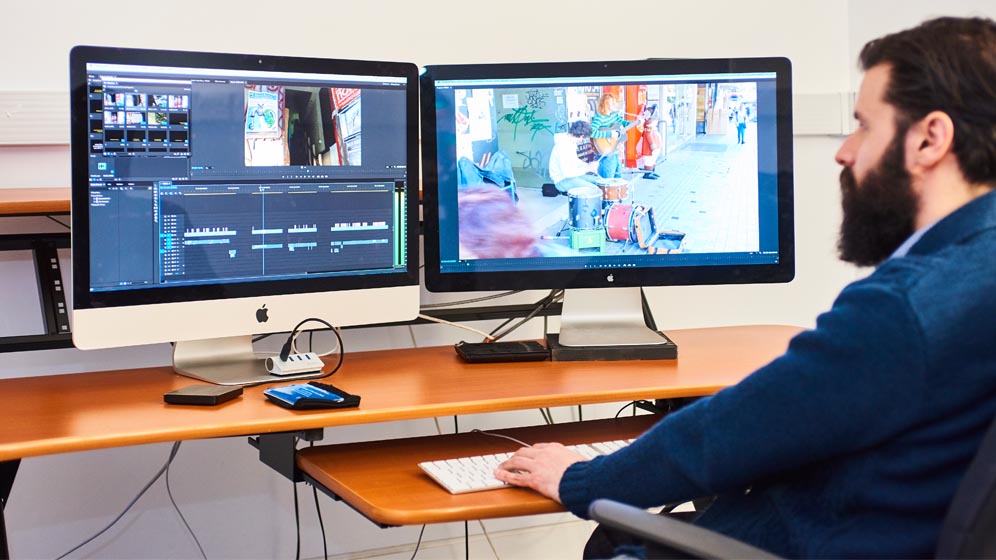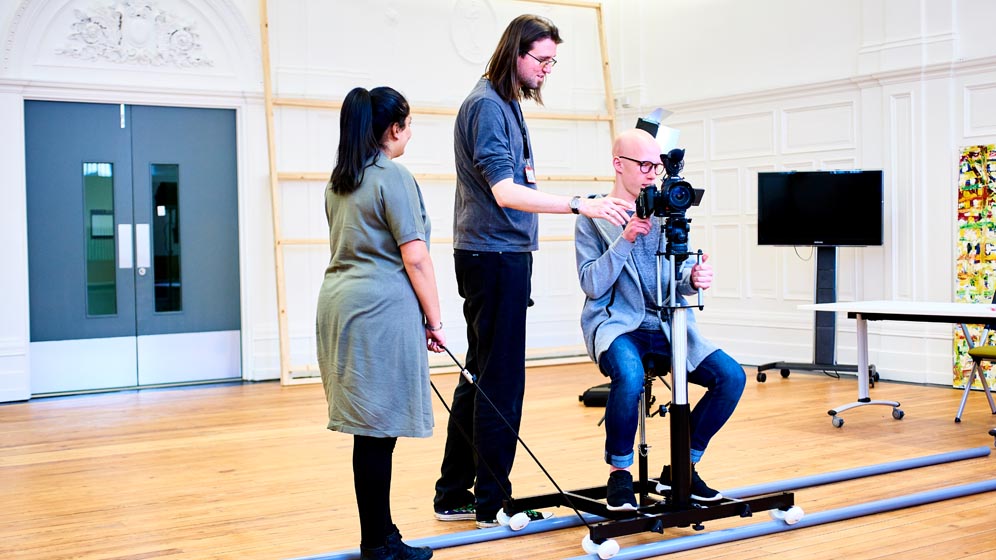Film and Media BA Honours
- UCAS code: P303
- Full time
- 3 years
This creative, innovative and diverse Film and Media degree equips you with practical skills and academic knowledge so you're ready to take the next steps in the film and media sectors.
You are currently viewing course information for entry year: 2026
Next start date:
- September 2026
UCAS Institution name and code:
- NEWC / N21
Course overview
Our three-year Film and Media degree focuses on developing your practical, intellectual and creative skills in documentary film-making alongside an understanding of media studies. You’ll also explore pressing issues in cultural studies, so you graduate ready for your role in creative industry.
Your degree is led by our experienced academics and award-winning film-makers. You will develop a range of professional skills to prepare you for your future, such as:
- documentary film-making skills
- critical reflection and essay-writing skills
- online communication and media and cultural analysis
You will become a sophisticated, creative, and confident documentary film-maker, able to contextualise your own film practice within media and creative industries.
Our film graduates have produced an array of documentary films that have been nominated and won some of the most prestigious documentary film awards in the UK, including:
- North East regional and national Royal Television Society Awards (RTS)
- the Grierson Awards (The British Documentary Awards)
Your course and study experience - disclaimers and terms and conditions
Please rest assured we make all reasonable efforts to provide you with the programmes, services and facilities described. However, it may be necessary to make changes due to significant disruption, for example in response to Covid-19.
View our Academic experience page, which gives information about your Newcastle University study experience for the academic year 2025-26.
See our terms and conditions and student complaints information, which gives details of circumstances that may lead to changes to programmes, modules or University services.
Quality and ranking
Professional accreditation and recognition
All professional accreditations are reviewed regularly by their professional body.
Modules and learning
Modules
The information below is intended to provide an example of what you will study.
Most degrees are divided into stages. Each stage lasts for one academic year, and you'll complete modules totalling 120 credits by the end of each stage.
Our teaching is informed by research. Course content may change periodically to reflect developments in the discipline, the requirements of external bodies and partners, and student feedback.
Featured Module
Starting out in FilmmakingThis module introduces students to the basic principles and processes involved in non-fiction film.
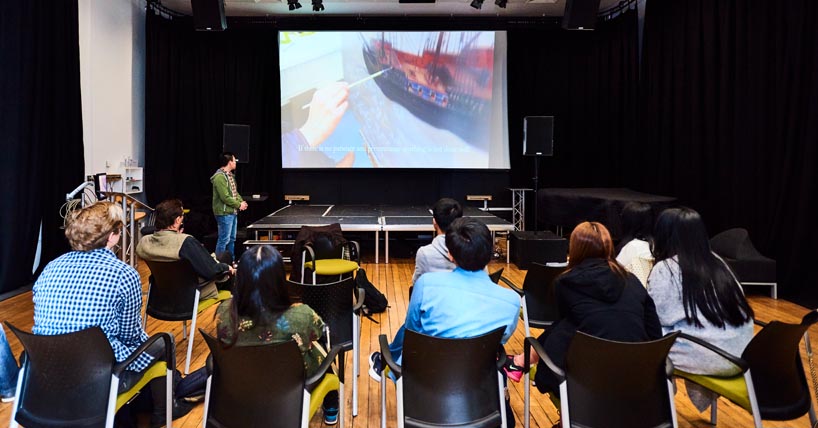
Optional module availability
Student demand for optional modules may affect availability.
Full details of the modules on offer will be published through the Programme Regulations and Specifications ahead of each academic year. This usually happens in May.
To find out more please see our terms and conditions
You are introduced to documentary film-making as a field of academic study, and will become comfortable with camera, audio, and editing technology.
You'll undertake a range of documentary film-making exercises, complemented by a module in research methods for film practice, a screening-based module exploring documentary film history, and a film theory module focused on intellectual approaches to film as a form of art.
You will choose from an optional module in media studies or world cinema.
Modules
| Optional Modules | Credits |
|---|---|
| Media Studies | 20 |
| Introduction to World Cinema: Ideas, Art, Cultures | 20 |
You build upon your film-making skills and undertake more complex and advanced film-making exercises.
You can also choose to explore issues, subjects, and themes within cultural and media studies in more depth.
Modules
| Compulsory Modules | Credits |
|---|---|
| Making a Short Documentary | 20 |
| Creative Documentary Practices | 20 |
You only take the following module if you are studying abroad: Student Exchange: Semester 1
You have the option of a full-year dissertation documentary practice project produced in a crew, or an individual written dissertation. These are opportunities to explore ideas and interests, as well as demonstrate the film-making and research skills you've developed over the first two years of the degree.
You must take one of the following compulsory modules (shown in the optional list below):
Media Research Dissertation (40 credits)
OR
Film Practice Project (60 credits)
You also continue to take options in cultural and media studies, or modules from further across the University.
We base these figures and graphs on the most up-to-date information available to us. They are based on the modules chosen by our students in 2024-25.
Teaching time is made up of:
- scheduled learning and teaching activities. These are timetabled activities with a member of staff present.
- structured guided learning. These are activities developed by staff to support engagement with module learning. Students or groups of students undertake these activities without direct staff participation or supervision
Teaching and assessment
Teaching methods
You are taught through lectures, seminars, workshops, and screening-based classes. However, importantly, you learn documentary film-making skills by doing – undertaking a wide variety of exercises and practical tasks.
Assessment methods
You'll be assessed through a combination of:
-
Assessments
-
Assignments – written or fieldwork
-
Coursework
-
Degree show
-
Dissertation or research project
-
Essays
-
Examinations – practical or online
-
Group work
-
Practical sessions
-
Presentations
-
Projects
-
Reflective report/journal
-
Seminar tasks/exercises
Skills and experience
Practical skills
You will create a portfolio of practical film work throughout the degree, including completing crew-based documentary films, and individual microfilms.
You'll also get the chance to attend field trips to film festivals such as Aesthetica Film Festival in York and Glasgow Short Film Festival. You will engage with the local North East film industry through field trips, cinema events, and guest sessions.
Business skills
You can choose the optional Stage 3 module Working in the Film Industry, led by guests from the film industry. You learn from professionals, develop your networks, and your future careers plans.
You can also take advantage of the annual Creative Careers events.
Research skills
You will develop research skills through a variety of film-making experiences, as well as learning from expert staff, with research themes including:
- observational film-making
- ethical practice in documentary film-making
- anthropological film-making
- film theory and film culture
- media, journalism and popular culture
- globalisation, nationalism and ethnicity
- gender, the body and sexuality
Opportunities
Study abroad
Experience life in another country by choosing to study abroad as part of your degree. You’ll be encouraged to embrace fun and challenging experiences, make connections with new communities and graduate as a globally aware professional, ready for your future.
You can choose the student exchange module in your second year. This will allow you to spend the first semester of second year on a student exchange.
Find out more about study abroad
Work placement
Apply your practical skills, increase your confidence and gain real-life work experience to accelerate your career. Take a 9-12-month industrial placement in the UK or abroad. Work placements usually take place in stage 3 of your studies and extend your degree by one year.
Facilities and environment
Facilities
As a student of Media, Journalism and Film Practice at Newcastle University, you will join a vibrant community in the School of Arts and Cultures' Media, Culture, Heritage department.
You will be based in the Armstrong Building and Film@CultureLab, right at the heart of our city-centre campus. You'll be close to all of Newcastle University's amenities, as well as being just a five-minute walk to Newcastle's main street, Northumberland Street.
You'll have access to:
- professional-standard video and audio equipment, studio space and AV-editing facilities
- specialist computing facilities, including industry-standard software, such as Adobe Creative Suite
- a mobile studio suite
Support
You'll have the support of an academic member of staff as a personal tutor throughout your degree to help with academic and personal issues.
You will also benefit from the expert knowledge and skills of our dedicated team of technicians.
Peer mentors will help you in your first year. They are fellow students who can help you settle in and answer any questions you have when starting university.
Your future
Recent graduates have gone on to positions in a variety of areas of the creative industries.
Graduates have taken roles with major media and creative agencies, independent documentary production companies and film industry support companies, as well as continuing with related postgraduate education.
Build your network
You will have opportunities to build your knowledge and networks in the film industry through learning led by industry guests.
These include established and emerging film directors and producers, cinematographers and editors, as well as impact producers from organisations such as:
- North East International Film Festival
- Star and Show Cinema
- North East Screen
- Amber Collective
- BBC Academy
- Aesthetica Film Festival
- Berwick Film Festival
- Glasgow Short Film Festival
Where a film degree could take you
Sorry, you need JavaScript to view this video
Careers support
Our Careers Service is one of the largest and best in the country, and we have strong links with employers. We provide an extensive range of opportunities to all students through our ncl+ initiative.
Visit our Careers Service website
Recognition of professional qualifications outside of the UK
If you’re studying an accredited degree and thinking about working in Europe after you graduate, the best place to find current information is the UK Government’s guidance on recognition of UK professional qualifications in EU member states. This official resource explains whether your profession is regulated in another country, what steps you need to take, and which organisation you should contact.
Entry requirements
All candidates are considered on an individual basis and we accept a broad range of qualifications.
The entrance requirements and offers below apply to 2026 entry.
| A-Level | |
|---|---|
| International Baccalaureate | |
|---|---|
Other UK and the Republic of Ireland qualifications
Alternative offers at Newcastle
Through one of our contextual or alternative offer routes, you could receive an offer of up to three grades lower than the typical requirements.
Contextual offers
We use certain contextual data from your UCAS form, alongside your application, to consider challenges that you may have faced in your education and the potential effect this may have had on your qualifications. This means you may be eligible to receive a lower contextual offer.
PARTNERS offers
One of the largest and longest support entry routes to university of its kind for students from underrepresented backgrounds. We support applicants from application through to study.
Realising Opportunities offers
A unique programme delivered in collaboration with 10 leading, research-intensive universities in the UK. The programme is open to students in Year 12/first year of college.
Pathways to Newcastle offers
Pathways to Newcastle, our national skills entry route, is available for specific subject areas.
High Performance Athletes
We support promising athletes at the application stage, who compete in regional, national or international levels in their sport.
Qualifications from outside the UK
English Language requirements
Entrance courses (INTO)
International Pathway courses are specialist programmes designed for international students who want to study in the UK. We provide a range of study options for international students in partnership with INTO.
These courses are specifically designed for international students who want to study in the UK and progress onto one of our undergraduate degrees. Our International Study Centre, has a range of study options including:
- International Foundation
- International Year One
- English Language courses
Find out more about International Pathway courses
Admissions policy
This policy applies to all undergraduate and postgraduate admissions at Newcastle University. It is intended to provide information about our admissions policies and procedures to applicants and potential applicants, to their advisors and family members, and to staff of the University.
University Admissions Policy and related policies and procedures
Credit transfer and Recognition of Prior Learning
Recognition of Prior Learning (RPL) can allow you to convert existing relevant university-level knowledge, skills and experience into credits towards a qualification. Find out more about the RPL policy which may apply to this course.
Tuition fees and scholarships
Tuition fees for academic year 2026-2027
The 2026 entry home fees have not yet been confirmed.
| Qualification: BA Honours | |
|---|---|
|
Home students full time 3 years |
Tuition fees (Year 1)
Not set |
|
International students full time 3 years |
Tuition fees (Year 1)
24,500 |
Year abroad and additional costs
For programmes where you can spend a year on a work placement or studying abroad, you will receive a significant fee reduction for that year.
Some of our degrees involve additional costs which are not covered by your tuition fees.
Scholarships
Find out more about:
Open days and events
You'll have a number of opportunities to meet us throughout the year at our on-campus and virtual open days.
You'll be able to:
- explore our beautiful campus
- find out about our vibrant city
- discover what students think about studying at Newcastle
You'll also have the opportunity to speak to academic staff and find out more about the subjects you're interested in.
Find out about how you can visit Newcastle in person and virtually.
We regularly travel overseas to meet with students interested in studying at Newcastle University. Visit our events calendar to find out when we're visiting your region.
How to apply
Apply through UCAS
To apply for undergraduate study at Newcastle University, you must use the online application system managed by the Universities and Colleges Admissions Service (UCAS). All UK schools and colleges, and a small number of EU and international establishments, are registered with UCAS. You will need:
- the UCAS name and institution codes for Newcastle University (NEWC/N21)
- the UCAS code for the course you want to apply for
- the UCAS 'buzzword' for your school or college
If you are applying independently, or are applying from a school or college which is not registered to manage applications, you will still use the Apply system. You will not need a buzzword.
Apply through UCASApply through an agent
International students often apply to us through an agent. Have a look at our recommended agents and get in touch with them.
Get in touch
By phone
Call us on +44 (0) 191 208 3333 and press option 1. Our opening hours are Monday to Friday 10am until 4pm.
Live chat
Our NCL chatbot might be able to give you an answer straight away. If not, it’ll direct you to someone who can help.
You'll find our NCL chatbot in the bottom right of this page.
Online
Keep updated
We regularly send email updates and extra information about the University.
Receive regular updates by email